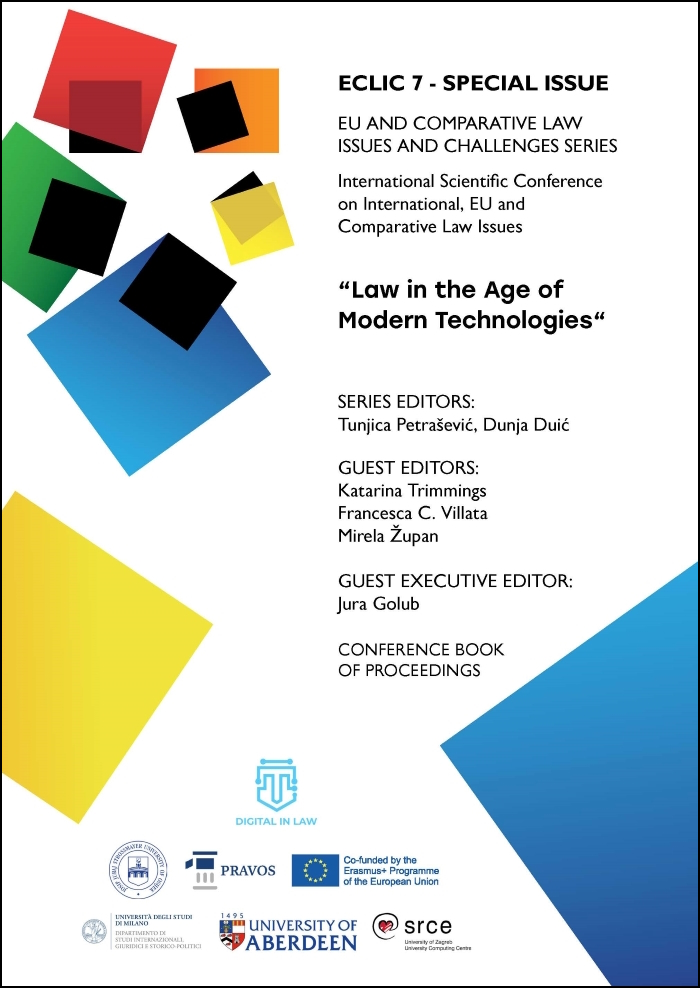OF BIOMETRIC DOCUMENTS, DATABASES AND FREE MOVEMENT OF PERSONS IN THE EU
DOI:
https://doi.org/10.25234/eclic/28260Abstract
Free movement of persons is a right recognised by the Treaty on the Functioning of the European Union (TFEU) for EU nationals (and their family members, irrespective of their nationality), and is one of the rights related to EU citizenship. Being an EU national is the qualifying element to benefit from the free movement regime, which is more favourable than the immigration regime otherwise applicable to foreigners. In order to prove one’s nationality, identity cards and passports play a central role. The issuance of these documents is regulated by national law. Over the last 20 years, EU law has intervened in this area with the aim of strengthening the document security. In 2004, the EU institutions passed a regulation on biometric passports and in 2019 a regulation on biometric identity cards. From now on, the facial image and fingerprints data of the holder are kept in the storage medium in these documents. The reasons for the introduction of biometric data lie in preventing the falsification of the document and the fraudulent use of authentic documents. On the one hand, the techniques used to preserve and protect the data make these documents more difficult to forge. On the other hand, the presence of biometric data creates a reliable link between the holder and the person who owns the document, thus making it easier to identify the person, and more difficult to use the document fraudulently by those who are not the real holder. Meanwhile, the EU is promoting the interoperability of the many databases established overtime. Interoperability connects different databases and makes the data stored in them searchable and accessible to a wider range of authorities and for other purposes than those for which they are collected. Biometric data, such as facial images and fingerprints are stored in many databases. The paper will sketch out the interference of the two issues (biometric documents and databases) in relation to the free movement of persons, in order 1) to map the instances in which controls on biometric documents of EU nationals or family members lead to search in the databases, and 2) to assess the impact that the very existence of biometric documents and databases can have on the fundamental rights of individuals.
Downloads
Published
How to Cite
Issue
Section
License
Copyright (c) 2023 Alessandra Lang

This work is licensed under a Creative Commons Attribution-NonCommercial 4.0 International License.
Authors retain the copyright on the papers published in the Journal, but grant the right of first publication to the Journal. Papers accepted for publication or already published in ECLIC of the Faculty of Law in Osijek may be published by the author(s) in other publications only with proper notice of its previous publication in ECLIC.


